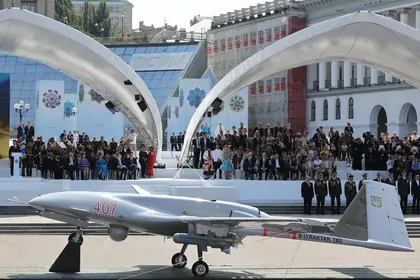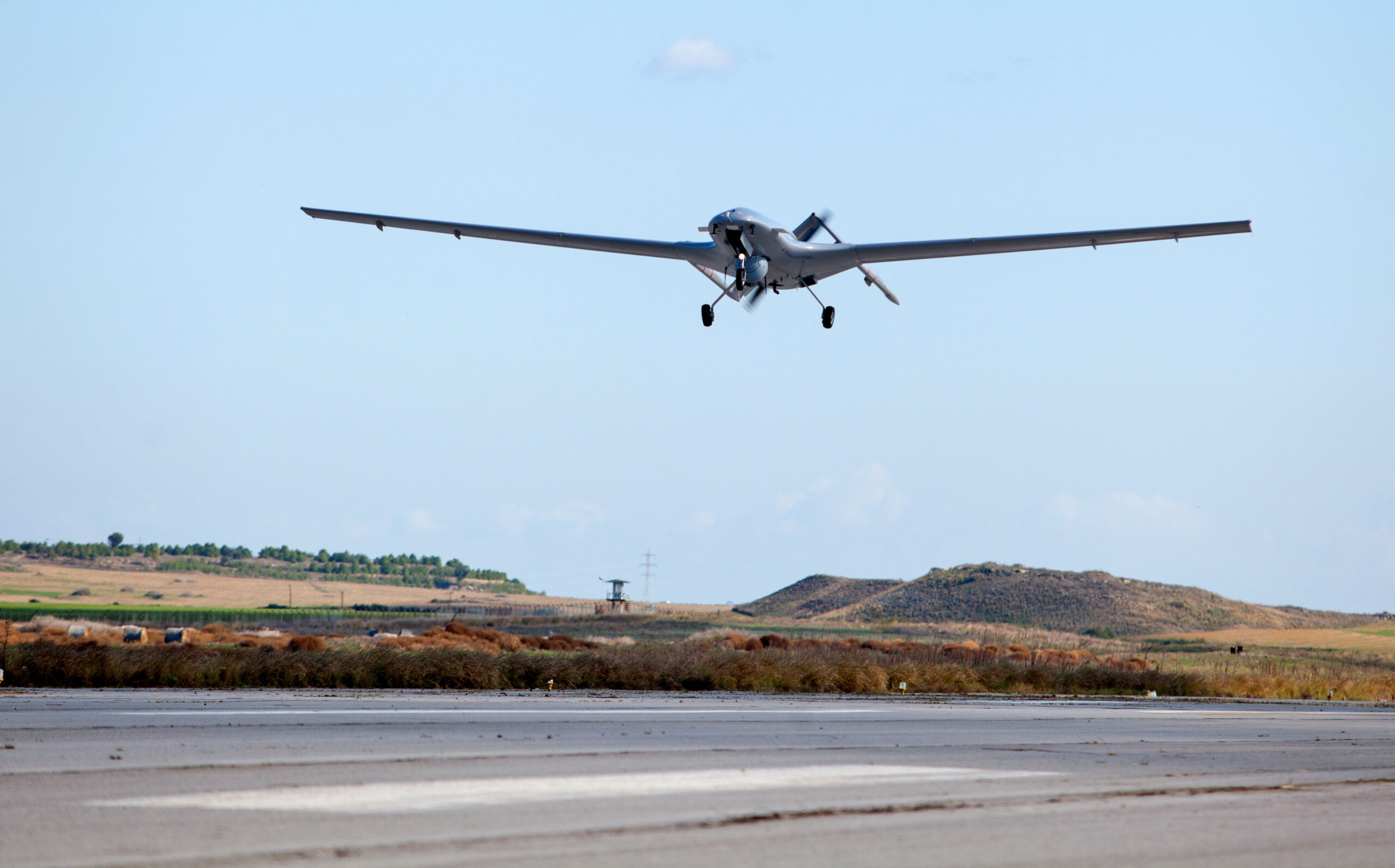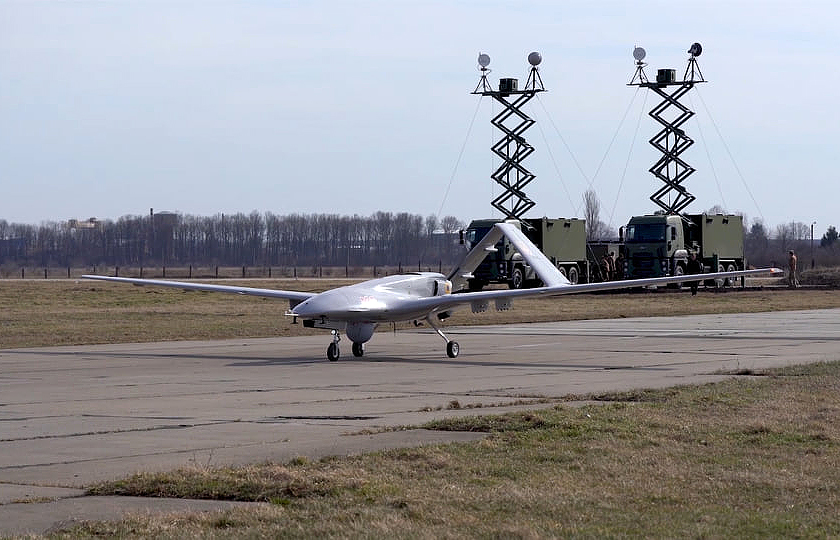Bayraktar TB2, the increasingly popular Turkish-produced unmanned aerial system, has made Ukrainian history with its combat debut in Donbas.
On Oct. 26, the Ukrainian military delivered its first drone strike against Russian-led forces, in retaliation for an artillery attack that had killed a Ukrainian serviceman and injured two.
JOIN US ON TELEGRAM
Follow our coverage of the war on the @Kyivpost_official.
The missile strike, which silenced an enemy artillery piece, triggered an ecstatic reaction from the Ukrainian public.
- Obtain the most contemporary war in ukraine update from the Kyiv Post’s news reports today.
- Examine the most contemporary Ukraine news that came out today.
But what’s even more exciting is that the Bayraktar drones may soon be manufactured here in Ukraine — Kyiv and Ankara are reportedly close to a final agreement.
According to official reports, the Turkish company Baykar Makina, which makes the Bayraktars, is ready and willing to create an industrial center in Ukraine. This would let it build scores of drones at a significant discount while taking advantage of Ukrainian brainpower.
If it happens, the enterprise would be a big win for both countries.
The Ukrainian military is counting on acquiring dozens of new attack drones in the next few years. The Turks want to meet the skyrocketing demand for their Bayraktars, whose impressive combat record is attracting increasing amounts of attention in the global arms market.
A drone alliance
Ukraine’s army and navy currently operate a total of 12 Bayraktar TB2 vehicles.
Following a $69 million deal with Baykar Makina in 2018, Ukraine effectively joined the club of nations operating strike drones. This let Ukraine take advantage of the expanding field of drone warfare while compensating for its aging Air Force fleet.
The Bayraktars have been gaining a foothold in various conflicts around the world, including in Libya and Syria. Swarms of the drones were reported to have destroyed 73 armored vehicles belonging to the Syrian government’s army during a week of fighting in the country’s Idlib province. Turkey has also used them against Kurdish forces in the region.
The operational history continued during the Nagorno-Karabakh war of 2020, in which the Azeri military successfully employed the Turkish drones against Armenian armor and artillery.
The drones’ attractive price tag has also helped attract clients. In May, Poland became the first NATO country to order 24 drones, which are due to be delivered in 2022. The Lithuanian authorities also reportedly considered a contract in June.
As recently as late September, Morocco also received its first delivery of as part of a $70 million contract to buy 13 drones.
Ukraine is also keeping up — according to Lieutenant General Valeriy Zaluzhniy, the top commander of the country’s armed forces, the military wants at least 24 new Bayraktars, and a new contract should be coming in 2021 or 2022.
According to Selcuk Bayraktar, Baykar Makina’s chief technology director and son-in-law of Turkish President Recep Tayyip Erdogan, the company occasionally can’t keep up with demand.
The company relies heavily on exports, gaining some 70% of its income from foreign sales.
According to Defense Express, a Kyiv-based analytics company, conditions are good for a “drone alliance” with Turkey. This would not only help Ukraine’s military deploy its own formidable killer drone swarm but also boost Baykar Makina’s expansion in arms markets.
Coming soon?
The drama surrounding the potential launch of a Bayraktar factory in Ukraine has swirled since 2019.
According to Oleh Uruskiy, Ukraine’s minister for strategic industries, the Turkish company wants to ensure 100% investment to launch the manufacturing on Ukrainian soil, which would cut drone production costs by nearly 35%.
According to Natalya Ozden, Baykar’s director for investments, the company aims to launch a technological research and development center, a manufacturing plant, and also a maintenance and repairs center in Ukraine.
However, many experts said this plan is highly unlikely. Ukrainian law demands that at least 50% plus 1 share of joint ventures must be held by the Ukrainian government, which the Turks are not happy about.
Many in Ukraine’s defense community have already kissed the promising deal goodbye. But in early October, Ukraine’s Foreign Minister Dmytro Kuleba said obstacles had been completely removed.
“I consider this project already launched,” he said on Oct. 7 after a meeting with his Turkish counterpart Mevlut Cavusoglu.
“Because it enjoys the political patronage of both presidents (Volodymyr Zelensky and Recep Tayyip Erdogan). And now we are happy to note that we have a land plot the plant is going to be built on.”
Politicians had completed the job, Kuleba added, so now business people can take over.
The deal was likely unblocked by legislation that effectively allowed the sector’s enterprises to be restructured, corporatized, and allowed to issue their own shares. Zelensky signed it into law on Oct. 1.
This law also launches reform of UkrOboronProm, the notorious state-run defense production giant. The future plant’s location has not been made public yet.
But the most recent developments make it seem that chances are high. On Sept. 29, Ukraine’s Defense Ministry signed a memorandum with Bayraktar Savunma, a Baykar Makina affiliate, to launch a joint center to maintain, repair, and modernize the drones, and also mentor new operating crews.
This center is going to be built in Vasylkiv, a Kyiv Oblast city of 35,000 people, some 25 kilometers south of the capital, and one of Ukraine’s key military aviation hubs hosting the Air Force’s 40th Tactical Aviation Brigade.
According to the Ukrainian military, this will be just one of many drone repair and maintenance centers built across the country.
And Russia is unhappy about the latest developments. The Kremlin warned on Oct. 27 that the use of Turkish-made drones could further worsen Russia’s war against Ukraine after Kyiv released footage of its military.
You can also highlight the text and press Ctrl + Enter






